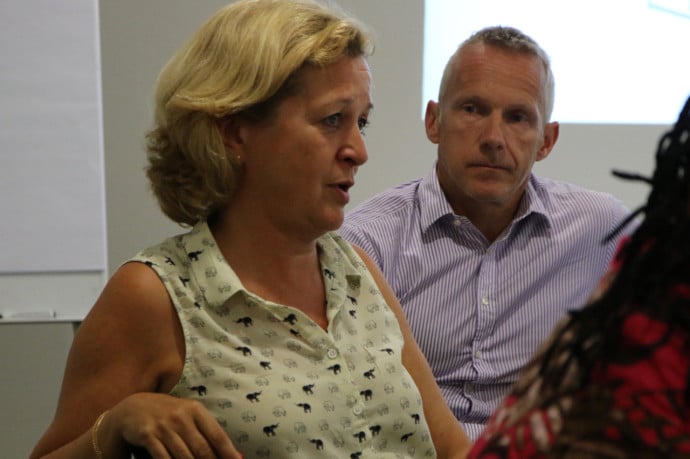The next STIAS-Wallenberg Roundtable will examine implementing image-based mobile technology for diagnostics and treatment to improve access and equity in health care, or mHealth for short. Potential mobile technology uses in health care mHealth can be applied in a large variety of settings within the health care sector, including data collection and surveillance, staff training, patient follow up and clinical support (see a recent example). Image-based mHealth In this latter case, image-based communication through smartphone cameras facilitates the modernization and up-scaling of procedures already in place within more traditional forms of telemedicine (e.g., dermatology and radiology) and also, most remarkably, extra-laboratory microscopy (“lab-on-a-chip”) in medical fields up to recently very dependent on the laboratory environment such as pathology or ophthalmology. In spite of this tremendous potential, reports from domains of application other than “image-based” call for cautious enthusiasm, indicating that many mHealth projects that start promisingly often are not sustained, leading to loss in both potential and set-up outlay. In fact, the general conditions of implementation and the perspective of the users themselves are often overlooked and the technologies are not used to their full potential, impeding successful implementation, sustainability and expansion. The above applies to a large extent to the SSA (Sub-Saharan Africa[n]) context where many of the known image-based applications can play a considerable role in the reduction of the burden of disease in the region, including rapid diagnostics of diseases like HIV, TB, and malaria, but also clinical assistance in injury emergency care (see concept note for references). The Roundtable context The Marianne and Marcus Wallenberg Foundation, key funders of the STIAS programme, have supported an annual roundtable forum since 2013 where representatives from South Africa, Sweden and the broader international community can engage in dialogue and debate around a central theme, typically one related to current global challenges, and in particular focusing on its local manifestation. (Previous roundtables have focused on energy, mental health, agricultural transformation and innovation policy.) The 2017 STIAS-Wallenberg Roundtable will focus on mHealth. Its aim is to provide a forum for a variety of stakeholders to discuss the possibilities that current developments in image-based mobile technology offer for timely, accurate and equitable healthcare delivery; and, the challenges that their development and implementation may entail for potential users and beneficiaries. Preparations

- A special issue of the journal Global Health Actionwill be devoted to mHealth. Contributions to this issue have been solicited by members of the CC, who are also responsible for the peer-review processes and the final editing of the accepted contributions. The production time-line is being managed carefully to ensure that the special issue will be available at the Roundtable in February 2017.
- Prerequisites for the development of mHealth will be discussed during the course of the Roundtable with a view to develop a roadmap, or possibly overlaying roadmaps, for implementation, expansion and up-scaling in resource-poor settings such as SSA. The roadmap(s), together with ideas, comments and criticisms from the Roundtable will inform the final editorial overview of the contributions in the special issue of Global Health Action.



